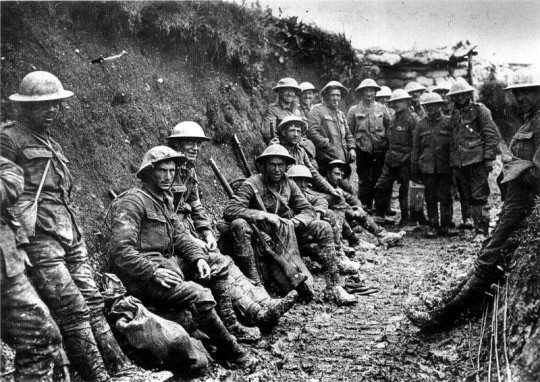Recently, I have read the book "All Quiet on the Western Front" and I noticed how much emotional pain there was. This is an essay I wrote about it.
Warning: There are spoilers in this post, so those who do not like spoilers should read the book before reading this. If you are fine with some spoilers, go on ahead and read.

"All Quiet on the Western Front" by Erich Maria Remarque vividly displays what wars is like through an unfiltered, first person point of view with stories of a soldier. Everyone knows that in war there is physical pain and people die, but most people doesn't reflect on it. The majority of people today have not been involved in war, as a result, they would not have the faintest clue how the soldiers felt. The book aids in enlightening and displaying the emotional pain by describing a soldier's experiences.

Many can be killed in battle, some quicker than others. They could be hit with a bomb and only feel a split second of pain. Some get shot in the leg and suffer, similar to Kemmerich. In the beginning , a soldier may fear dying, but as time goes by nearly all of it leaves. Most of their emotions leave as they put themselves on autopilot of war and killing. They cannot think about what they are doing or else they will not be able to complete their job properly and feel remorse every time they take someone's life. Paul even alludes to it by saying (Remarque, 20) "We know only that in some strange melancholy way we have become a wasteland. All the same, we are often not sad." But sometimes feeling nothing and blocking out emotions, like a machine, is the worst depression of all.
When Paul goes home on leave, he feels isolated. His mind blocks out what he has done and seen to preserve his sanity. Although, seeing others and his family reminds him of a time he can hardly remember and seems so long ago, before he was completely changed. They ask him about the war, but when they ask, it reminds him of the time he doesn't want to think about. Yet, those are the memories that keep repeating in his head. His family feels that he is different too, and it drives a wedge into their relationship. Feeling isolated, even among his family, would make him believe he had nothing to go back to and worsen the depression he might have already felt.

According to Paul, the best thing to come out of the war is comradeship. In the war, the soldiers' comrades are their only friends and the only ones who could truly understand what they were experiencing. They gain trust through fighting together. But a person can't last forever in war, sooner or later, their comrades die and there's nothing they can do about it. Like when Kat, Paul's best friend and mentor, dies. He does all he can to save Kat, but in the end it was all in vain. The fact that Paul is a normal person, like all of us, creates a greater impact and makes the story more relatable. In war, everyone gets hurt, but the physical wounds can heal. The emotional pain of losing someone, not fitting in, or trauma of war itself lasts longer. Some of these are wounds that never heal and scars that still hurt.